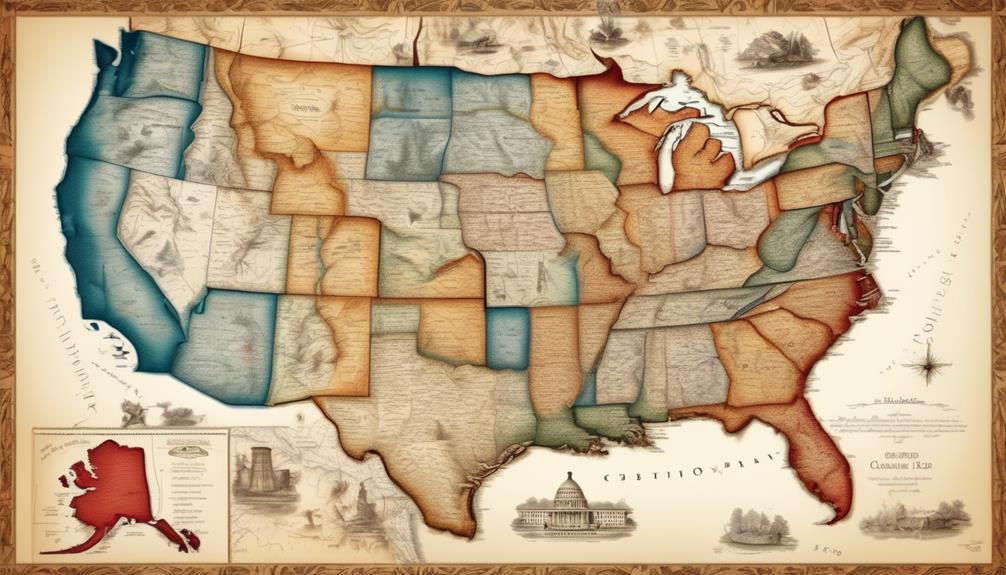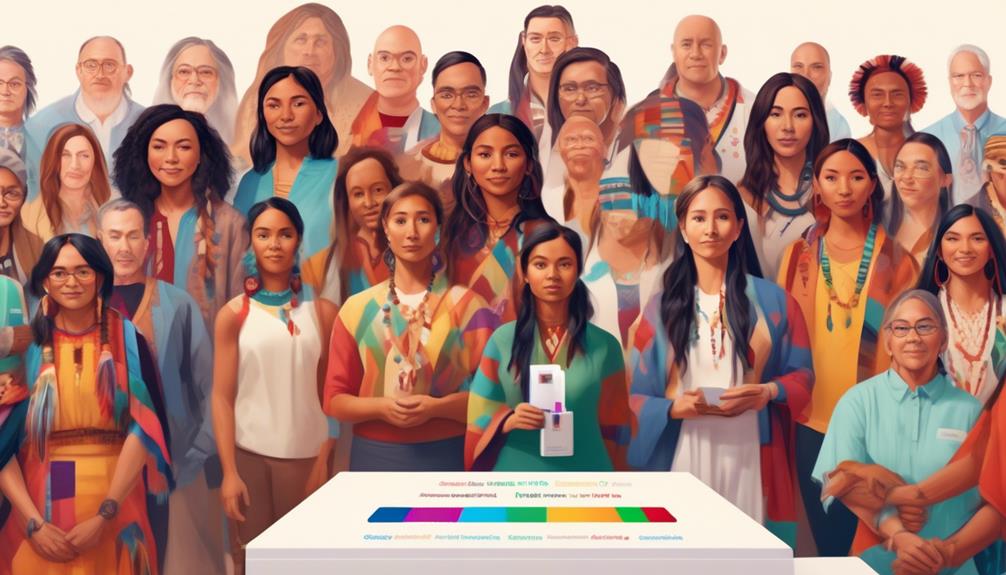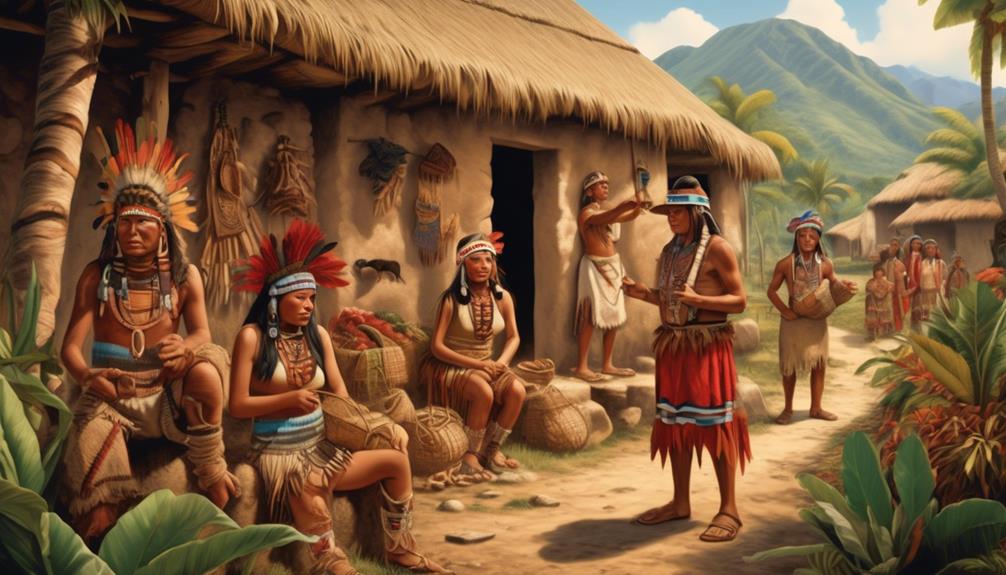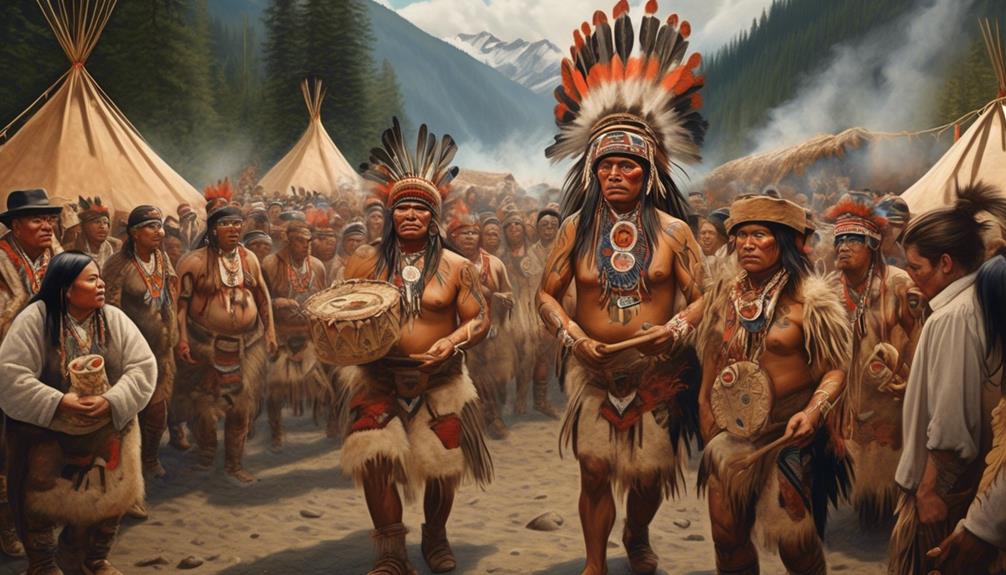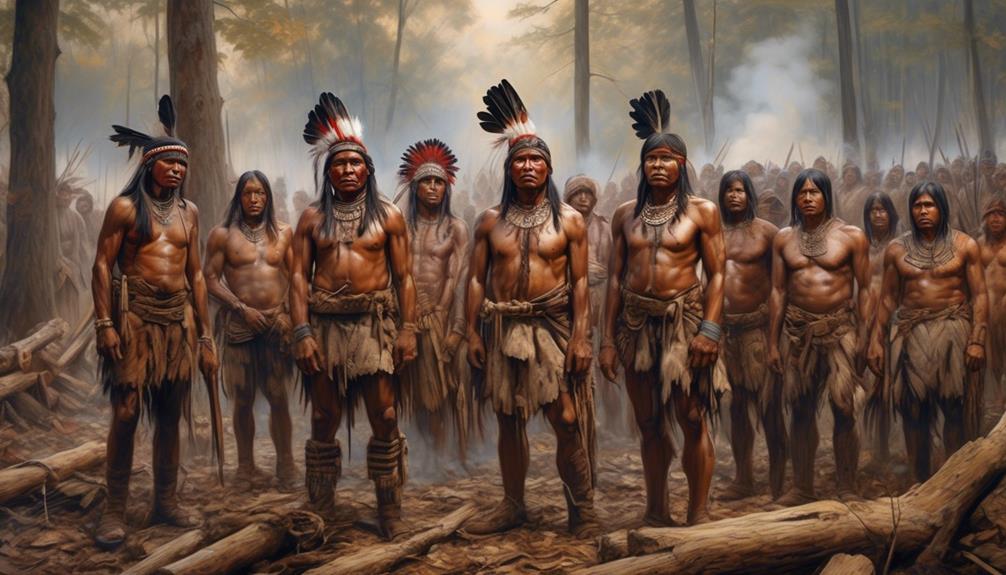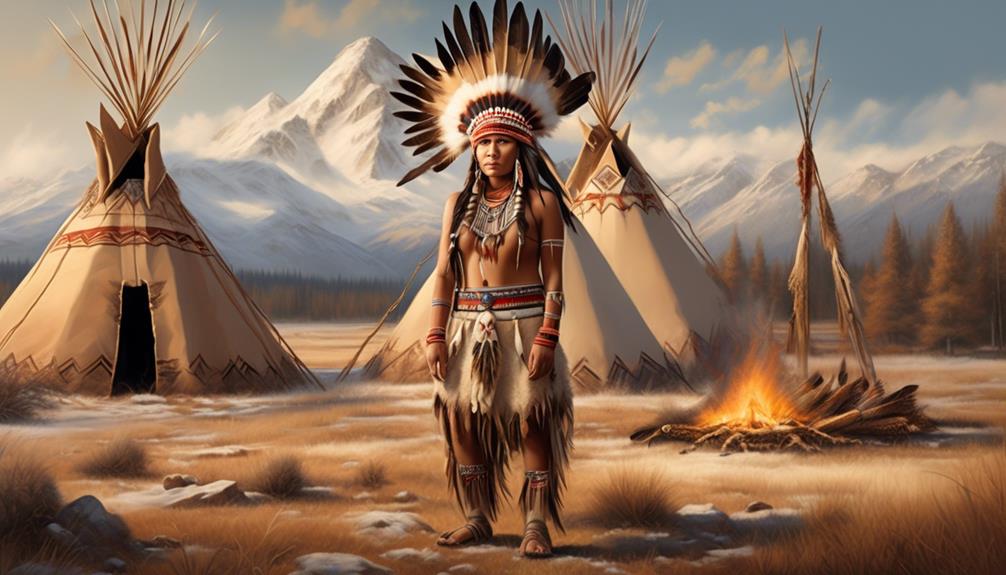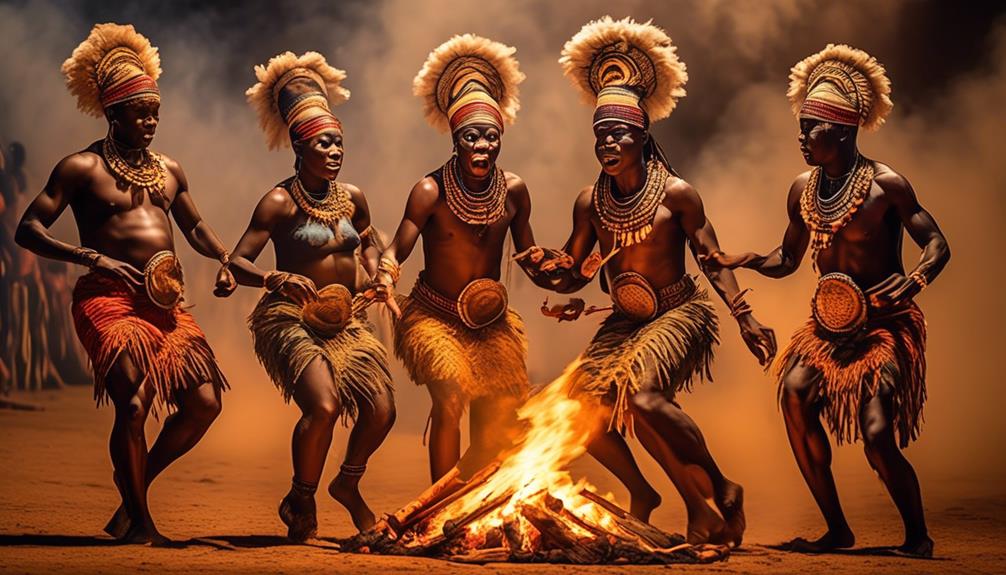Have you ever thought about why some states have switched to celebrating Indigenous Peoples’ Day instead of Columbus Day?
The transition from celebrating Christopher Columbus's arrival to honoring the indigenous peoples of North America has been gaining momentum in recent years. It's not just a change in name; it reflects a broader shift in recognizing and respecting the rich and diverse cultures of indigenous communities.
But which states have made this change, and what impact has it had on these communities?
Join us as we explore the evolving landscape of Indigenous Peoples' Day and its significance in today's society.
Key Takeaways
- California, Vermont, and Minnesota are among the states that have officially recognized Indigenous Peoples' Day.
- The adoption of Indigenous Peoples' Day reflects a growing awareness of the need to confront the legacy of colonialism and celebrate indigenous heritage.
- Indigenous Peoples' Day provides an opportunity for cultural revival and community empowerment for indigenous communities.
- Public celebrations of Indigenous Peoples' Day include traditional dance performances, storytelling sessions, and art exhibitions, fostering open dialogue and meaningful connections between different backgrounds.
Historical Context of Columbus Day
As we reflect on the historical context of Columbus Day, we recognize the complex and often painful legacy associated with the arrival of Christopher Columbus in the Americas. The historical significance of Columbus Day has been a subject of debate and reflection.
For many years, it has been celebrated as the day when Columbus arrived in the Americas, marking the beginning of a new era. However, it's essential to acknowledge that this event also brought about significant negative consequences for the indigenous peoples of the Americas, including colonization, exploitation, and the loss of lives and land.
Understanding the historical significance of Columbus Day requires a nuanced approach that considers both the achievements and the atrocities associated with this historical event. It's a time to acknowledge the suffering endured by indigenous communities and to recognize the impact of colonization on their cultures and way of life.
As we navigate the complexities of history, it's crucial to approach this topic with empathy and a willingness to learn from diverse perspectives. By doing so, we can honor the historical significance of Columbus Day while also acknowledging the painful legacy it represents for many.
States That Have Adopted Indigenous Peoples' Day
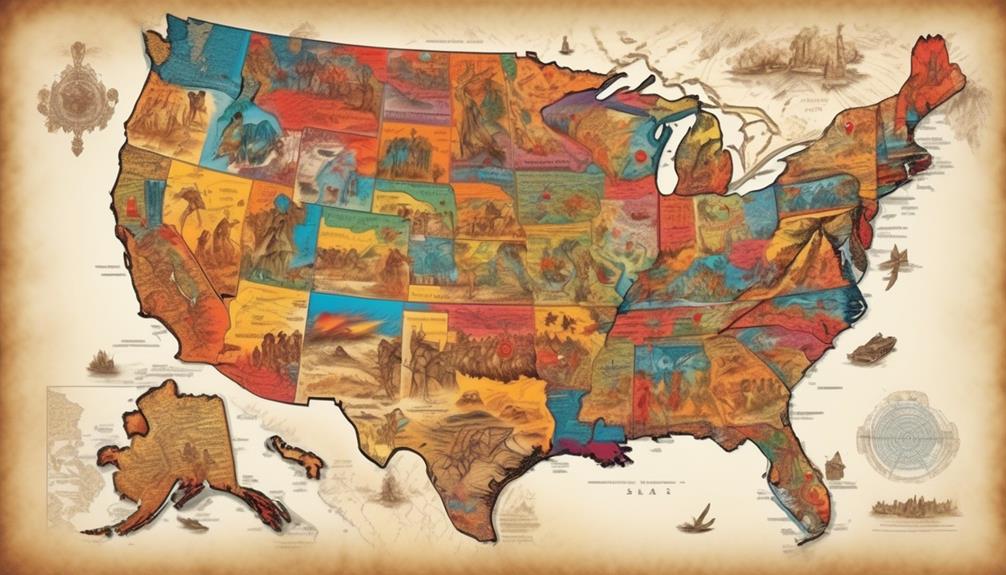
Several states across the United States have officially recognized Indigenous Peoples' Day as a holiday, replacing or coinciding with the observance of Columbus Day. This shift holds immense cultural significance, acknowledging and honoring the history, culture, and contributions of Indigenous peoples. It also carries political implications, signaling a reevaluation of historical narratives and a commitment to inclusivity.
| State | Year Adopted | Significance |
|---|---|---|
| California | 2019 | Acknowledges the state's diverse Indigenous communities. |
| Vermont | 2019 | Recognizes the continued presence and resilience of Indigenous peoples. |
| Minnesota | 2016 | Emphasizes the importance of understanding and respecting Indigenous cultures. |
The adoption of Indigenous Peoples' Day by these states reflects a growing awareness of the need to confront the legacy of colonialism and celebrate the rich heritage of Native American communities. By officially commemorating this day, these states are sending a powerful message about the value of diverse perspectives and the importance of recognizing and honoring the experiences of Indigenous peoples. This shift is a step towards fostering a more inclusive and equitable society.
Impacts on Indigenous Communities
Recognizing the impacts of historical trauma and ongoing systemic injustices is crucial in understanding the significance of Indigenous Peoples' Day for Indigenous communities. The establishment of Indigenous Peoples' Day has provided an opportunity for cultural revival and community empowerment among Indigenous peoples. By acknowledging and celebrating Indigenous cultures, traditions, and contributions, this observance helps to counteract the erasure of Indigenous history and the marginalization of Indigenous communities. It serves as a platform for promoting cultural resilience and reclaiming Indigenous identities that have been historically suppressed.
The shift to Indigenous Peoples' Day has also fostered a sense of pride and validation within Indigenous communities, affirming the importance of their heritage and existence. It has created space for healing from intergenerational trauma and has enabled Indigenous peoples to assert their narratives on a national stage. Additionally, the designation of Indigenous Peoples' Day has catalyzed increased awareness and education about the experiences and ongoing struggles of Indigenous peoples. This has led to greater empathy and support from non-Indigenous allies, contributing to the broader movement for social justice and equity.
Public Reactions and Celebrations
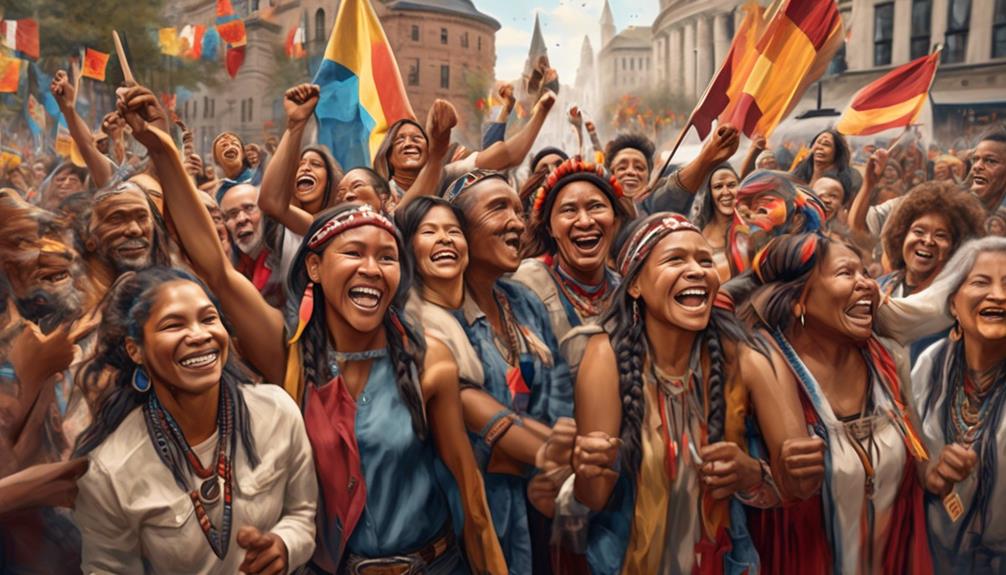
Public reactions to the shift to Indigenous Peoples' Day have been diverse, with communities across the country organizing celebrations to honor and recognize the contributions of Indigenous peoples. These events aren't only a testament to the growing support for reconciliation efforts but also an expression of cultural pride and solidarity with Indigenous communities.
The transition to Indigenous Peoples' Day has sparked a wave of enthusiasm and engagement, with people coming together to participate in various activities such as traditional dance performances, storytelling sessions, and art exhibitions showcasing Indigenous heritage.
In many places, these celebrations have served as a platform for open dialogue, allowing individuals from different backgrounds to come together and learn from each other. It has been heartening to witness the genuine interest and respect shown towards Indigenous cultures, as people seek to deepen their understanding and forge meaningful connections.
These events have also provided an opportunity for local Indigenous artists, artisans, and entrepreneurs to showcase their work, fostering economic empowerment within their communities.
This growing recognition and appreciation for Indigenous Peoples' Day signify a significant step towards fostering a more inclusive and harmonious society.
Future Trends and Considerations
As we look ahead, it is essential to consider the potential future trends and factors that may influence the continued recognition and observance of Indigenous Peoples' Day. One significant aspect to ponder is the upcoming legislation in various states regarding the formal adoption of Indigenous Peoples' Day. This legislative activity will shape the expansion of states recognizing this day and further solidify its place in our national calendar. Additionally, the cultural significance of Indigenous Peoples' Day will play a pivotal role in its future observance. Understanding and appreciating the rich cultural heritage of indigenous communities can lead to increased support and participation in the celebrations of this day.
| Future Trends and Considerations | |
|---|---|
| Upcoming Legislation | Cultural Significance |
It is crucial to acknowledge the ongoing efforts of indigenous communities to preserve their traditions and history, and the observance of Indigenous Peoples' Day is a way to honor and support these endeavors. By recognizing the cultural significance and the legislative developments, we can anticipate a growing momentum for the nationwide observance of Indigenous Peoples' Day.
Frequently Asked Questions
How Can Non-Native Individuals and Communities Show Support for Indigenous Peoples' Day?
We can support Indigenous Peoples' Day by advocating for its recognition, raising awareness about its significance, and educating others on the contributions of indigenous communities.
We can show support by participating in local events, amplifying indigenous voices, and learning about their culture and history.
It's essential to respect their traditions and promote inclusivity.
Our actions should reflect genuine empathy and a commitment to standing in solidarity with indigenous peoples.
What Are Some Common Misconceptions About Indigenous Peoples' Day and How Can They Be Addressed?
Addressing misconceptions about Indigenous Peoples' Day is vital for celebrating diversity and honoring heritage. Many people misunderstand the history and significance of the day, leading to misconceptions.
Are There Any Specific Cultural Traditions or Customs Associated With Indigenous Peoples' Day Celebrations?
Cultural traditions associated with Indigenous Peoples' Day celebrations are rich and diverse. Indigenous communities honor their heritage through various customs, such as traditional dances, storytelling, and feasting.
These celebrations serve as a way to reclaim and highlight the vibrant cultures and histories of indigenous peoples. It's important to recognize and respect these customs, fostering understanding and appreciation for the enduring legacies of indigenous communities.
What Efforts Are Being Made to Educate the Public About the History and Significance of Indigenous Peoples' Day?
Efforts to educate the public about the history and significance of Indigenous Peoples' Day are increasing. Awareness campaigns and educational initiatives are vital in promoting understanding and respect for Indigenous cultures.
One interesting statistic is that a recent survey found that 67% of Americans support the idea of Indigenous Peoples' Day.
These efforts aim to highlight the rich heritage and contributions of Indigenous communities and foster a more inclusive society.
How Are Schools and Educational Institutions Incorporating Indigenous Peoples' Day Into Their Curriculum and Programming?
Incorporating traditions and educational resources & programs, schools and educational institutions are taking steps to integrate Indigenous Peoples' Day into their curriculum and programming.
This includes teaching the history and significance of Indigenous Peoples' Day, incorporating traditional practices, and providing resources that accurately represent Indigenous cultures.
Conclusion
As we reflect on the states that have changed to Indigenous Peoples' Day, it's clear that progress is being made to honor and recognize the rich history and culture of indigenous communities.
This shift is a step in the right direction, but there's still much work to be done to ensure that their voices are heard and their contributions are celebrated.
Let's continue to stand in solidarity with indigenous peoples and strive for a more inclusive and equitable future.
After all, actions speak louder than words.
Mary is a passionate writer who brings creativity and a fresh perspective to our team. Her words have the power to captivate and inspire, making her an essential contributor to our content. Mary’s commitment to storytelling and dedication to promoting Indigenous culture ensures that her work touches the hearts of our readers. We’re fortunate to have her as part of our team.
